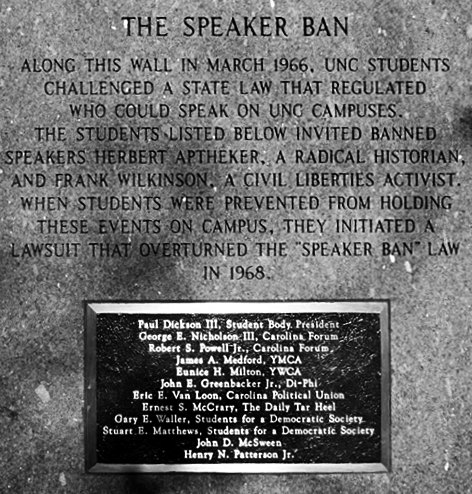 A public university, by dint of being a public university, is itself a free speech zone.
A public university, by dint of being a public university, is itself a free speech zone.
This fact inconveniences anti–free-speech “progressives,” self-styled “social justice warriors,” and other would-be dictators of discourse. And they haven’t yet been able to shout down and drive off all ideas they wish never to be heard.
But if others’ free speech can inconvenience them, they discovered they could inconvenience free speech. Which they do with administrative bluster, declaring only certain portions of the campus as “free expression zones.”
Then they act as if they have expanded freedom to undeserving students out of noblesse oblige, when in fact they have greatly restricted it — while expanding their own powers to harass students subjectively, should something they say outside of the arbitrary boundary upset anyone.
Meanwhile, they carefully cultivate students to be ridiculously hypersensitive to “triggering” ideas, like drug-sniffing dogs snuffling through the mental lockers of their peers and howling whenever they catch even the faintest whiff of ThoughtCrime.
What a woeful lesson to teach, that even the state’s brightest young minds cannot now nor never will learn how to handle an upsetting idea!
So I’m always glad to read when students do what the supposedly higher minds on campus (to their shame) won’t: stand up for the free exchange of ideas on a university campus, the one place where people should be most, not least, receptive to challenging ideas.
Carolina Journal reports of such a movement at Western Carolina University:
A Young Americans for Liberty group at Western Carolina University is protesting what it calls “free speech zones” on campus that the group says suppress First Amendment rights — but university officials deem the institution’s policies reasonable for the protection of its students, faculty, and staff.
Current WCU rules require that students maintain a 50-foot distance from all campus buildings during outdoor assemblies, and demand that groups notify school administrators 48 hours prior to any event so that “safety measures may be provided if necessary.”
The rules make it tough to find enough space for gatherings, and prevent students from spontaneously gathering to respond to current events, said Garrett Smith, the university’s YAL chapter president.
Image: UNC-Chapel Hill’s monument to its communitywide effort to fight the Speaker Ban Law, which is rightly still considered (however ironically now) one of the proudest moments in the university’s history.


